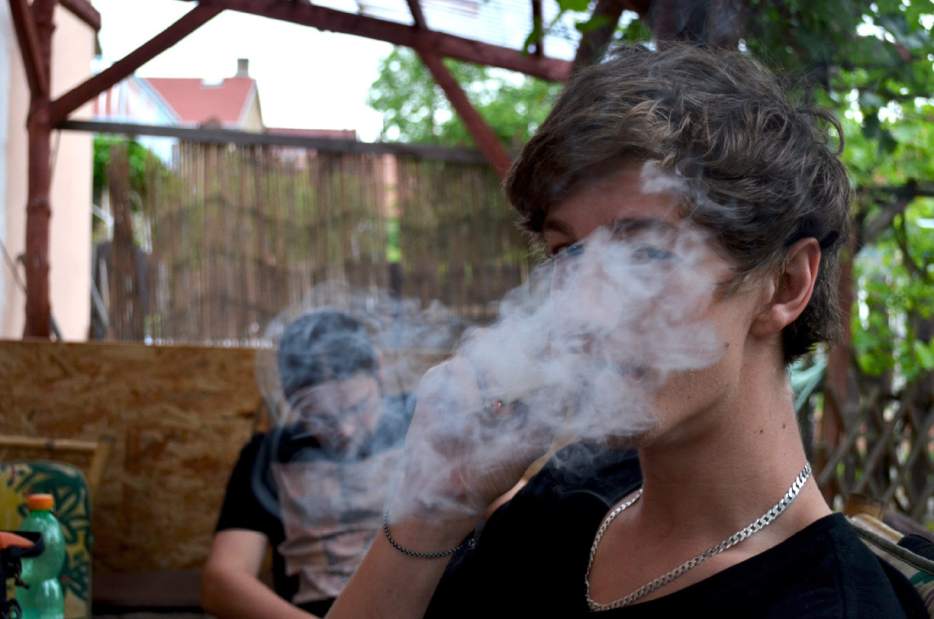https://archive.triblive.com/local/pittsburgh-allegheny/despite-nations-opioid-epidemic-more-teens-saying-no-to-drugs/
Despite nation's opioid epidemic, more teens saying no to drugs

Pixabay
Drug and alcohol use among American teenagers is on the decline despite the ongoing national opioid scourge, according to a new federally funded survey.
The data comes with one caveat: marijuana use, which has become more socially acceptable as states legalize it for recreational or medical use, remained steady among high school seniors. Otherwise, teens' use of drugs, alcohol and tobacco declined in 2016 to their lowest rates since the 1990s.
The annual "Monitoring the Future" survey, which has been conducted since 1975, surveys substance abuse and attitudes among eighth-, 10th- and 12th-graders. About 45,000 students from 380 public and private schools participated in the 2016 survey, conducted by researchers at University of Michigan's Institute for Social Research and funded by the National Institute on Drug Abuse.
Local addiction experts were pleased with the findings but expressed concerned about the cavalier attitude by some teens when it comes to marijuana use.
About 21 percent of high school seniors said they used marijuana in the past month. Six percent said they used marijuana daily over the past year.
Among seniors, 4.8 percent said they abused opioids during the past year. That was a significant departure from a peak of 9.5 percent in 2004. Only 0.3 percent of high school seniors reported using heroin over the past year, down from 1.5 percent in 2000 and 0.7 percent in 2010. Additionally, 2.9 percent of seniors reported abusing the pain reliever Vicodin in the past year, compared to 10 percent in 2006.
"We are moving in the right direction, but so much work needs to be done with prevention," said Dr. Antoine Douaihy, medical director of addiction medicine services at Western Psychiatric Institute and Clinic of UPMC. "There's not justification to sit back and say, 'Everything is fine.' Especially with marijuana. There's clear evidence that chronic adolescent use of cannabis can have adverse effects on learning and memory."
Eighth-graders' past-year use of marijuana did not mirror that of 12th-graders, dipping to 9.4 percent in 2016 from 11.8 percent in 2015. Past-month use of marijuana among eighth-graders decreased to 5.4 percent in 2016 from 6.5 percent in 2015.
!function(e,t,n,s){var i="InfogramEmbeds",o=e.getElementsByTagName(t),d=o[0],a=/^http:/.test(e.location)?"http:":"https:";if(/^/{2}/.test(s)&&(s=a+s),window[i]&&window[i].initialized)window[i].process&&window[i].process();else if(!e.getElementById(n)){var r=e.createElement(t);r.async=1,r.id=n,r.src=s,d.parentNode.insertBefore(r,d)}}(document,"script","infogram-async","//e.infogr.am/js/dist/embed-loader-min.js");
"Clearly our public health prevention efforts, as well as policy changes to reduce availability, are working to reduce teen drug use, especially among eighth-graders," said Dr. Nora Volkow, director of the National Institute on Drug Abuse. "However, when 6 percent of high school seniors are using marijuana daily, and new synthetics are continually flooding the illegal marketplace, we cannot be complacent." The study's lead investigator, Lloyd Johnston, told the Tribune-Review that publicity surrounding the dangers of heroin and opioids may be contributing to the broader decline. Drinking alcohol also dropped significantly, with 37 percent of high school seniors saying they've been drunk at least once. That's down from the peak rate of 53 percent in 2001. The survey indicated marijuana and e-cigarettes are more popular than regular cigarettes. Among 12-graders, 12.4 percent reported using e-cigarettes in the past month, compared to 10.5 percent for cigarettes. A large drop in cigarette use was seen in all three grades, with a long-term decline from their peak use more than two decades ago. In 1991, for example, 10.7 percent of high school seniors reported smoking a half-pack or more a day, while the survey determined that rate has dropped to 1.8 percent in 2016. Johnston, a research professor at the University of Michigan, said drinking and smoking cigarettes are often the first introduction to drug use. The decline in those gateway activities most likely merit consideration to the overall drop-off in drug use. "I imagine that a lot of parents will be happy with this news," he said. Allegheny Health Network's Dr. Joseph Aracri said he believes parents are more vigilant and open to discussing drug and alcohol with their children. "I think kids are more aware that abusing drugs has consequences beyond parental disappointment," he said. While he's encouraged by the findings, Aracri, who is AHN's chair of pediatrics, said the methodology is a little muddy. "In a survey, you have to wonder how honest the teens are being," he said. "I understand it's an annual thing, but it might not be completely accurate. It's probably a lot different than when a child I know comes in to me and admits his drug or alcohol use." Ben Schmitt is a Tribune-Review staff writer. Reach him at 412-320-7991 or bschmitt@tribweb.com.Copyright ©2026— Trib Total Media, LLC (TribLIVE.com)
